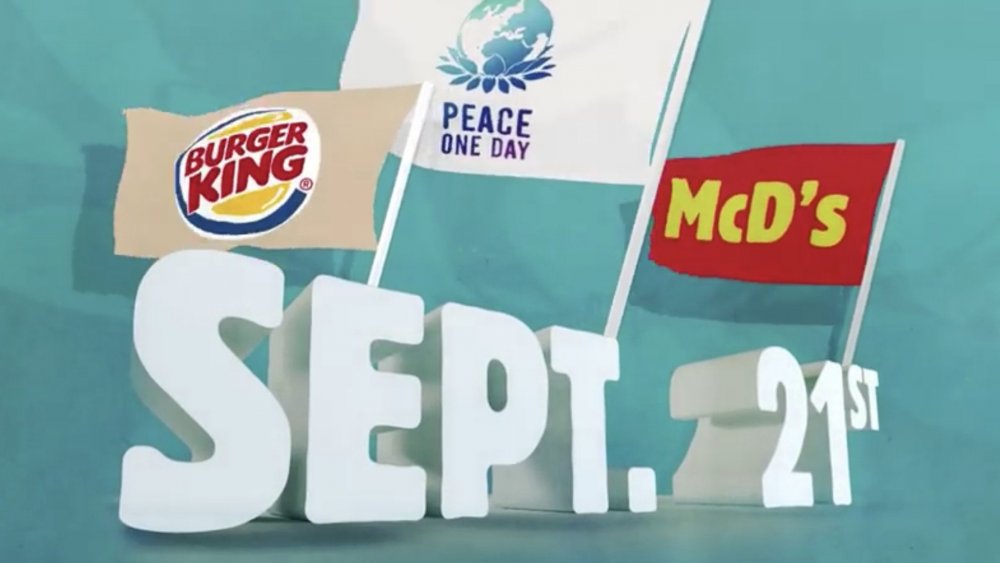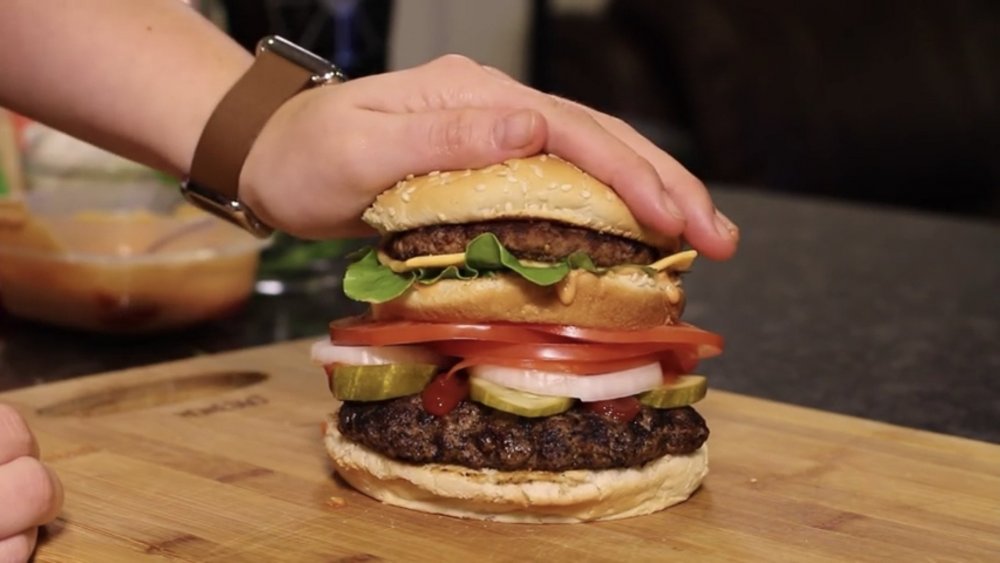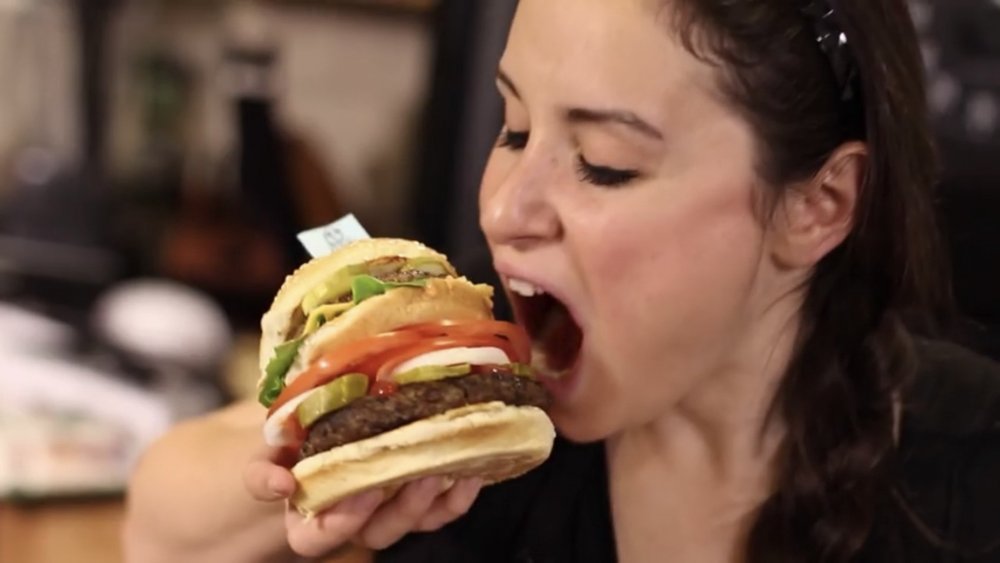Whatever Happened To The McWhopper?
Imagine if Tupac and Biggie had collaborated. Or the Red Sox and the Yankees fielded a baseball team together. Maybe Coke and Pepsi could combine forces and come up with a soft drink? If these scenarios sound too utterly fantastic to be true, that's because they are. Burger King proposed a partnership that would have been just as mind-blowing. McDonald's, however, wasn't ready to make peace with its burger rival.
Think about it. If two corporations that go to war for the burger-buying public's dollar can set aside their differences, then maybe world peace is possible after all. That was the thinking, anyway, behind the guerilla marketing tactic Burger King sprung on the world on Aug. 26, 2015. Burger King ran full-page ads in The New York Times and the Chicago Tribune (via Vice). "We know we've had our petty differences," Burger King said in its "open letter" to McDonald's, "but how about we call a ceasefire on these so-called 'burger wars?'"
Burger King proposed the McWhopper, a Big Mac-Whopper hybrid that would be sold for one day only in a pop-up restaurant in Atlanta, Georgia, halfway between McDonald's HQ in Chicago and Burger King's base in Miami. The McWhopper would be available on Sept. 21, the International Day of Peace, with all proceeds going to the nonprofit Peace One Day. Next thing you know, Chick-fil-A will agree to go into business with Popeyes on a Sunday.
The McWhopper wasn't even Burger King's idea
If the purpose of the ad was to get people's attention (what other purpose is there?), then it worked. Everyone in the media from Vice to The New York Times reported on Burger King's peace offering. The TODAY show even bit into its own Big Mac-Whopper mashup. But McDonald's, who like everyone else was taken by surprise, declined Burger King's offer in a now-deleted Facebook post. Steve Easterbrook, McDonald's CEO at the time, said he appreciated the concept but thought the two big companies could do something more meaningful to promote world peace. Then Easterbrook took Burger King's olive branch and poked them in the eye with it. " ... [B]etween us there is simply a friendly business competition and certainly not the unequaled circumstances of the real pain and suffering of war," he said. "P.S. A simple phone call will do next time" (via CNN Wire).
Perhaps McDonald's turned down Burger King's peace offer because they wouldn't be able to take credit for it. As a video outlining the proposal shows, Burger King had set up the whole thing even before telling McDonald's about it, right down to the design of the McWhopper itself: Whopper on the bottom, Big Mac on top. The funny thing about Burger King's idea, however, was that they didn't come up with it.
McDonald's said no to the McWhopper, but the internet said yes
The McWhopper was hatched by a small Kiwi ad agency called Y&R New Zealand. Burger King wasn't even the campaign's client, at least not initially. Its purpose was to raise awareness for Peace One Day (via Little Black Book). The motivating idea was to get rival companies to join forces, whoever they might be. The New Zealand agency imagined a single tech-giant website called "Yahoogle" or that maybe people would have a chance to try a "can of Copsi" after all, Y&R Creative Director Tom Paine told Little Black Book. While Atlanta never got a taste of the official McWhopper, the ad campaign by any other measure was a huge success. A video by the Commercial Communications Council of New Zealand said the campaign generated $220 million in free publicity and raised awareness of Peace Day by 40 percent. The Commercial Communications Council also gave the McWhopper campaign four of its Axis awards at a ceremony in 2016.
The campaign was so successful that an unknown number of McWhoppers were created at home or built from Whoppers and Big Macs purchased separately. People who really wanted to satisfy their McWhopper curiosity could and did. And of course, they posted videos of their McWhopper experiences online, just as the ad campaign's creators had intended. "McDonald's said no, but the internet said yes," Y&R's Paine said.


